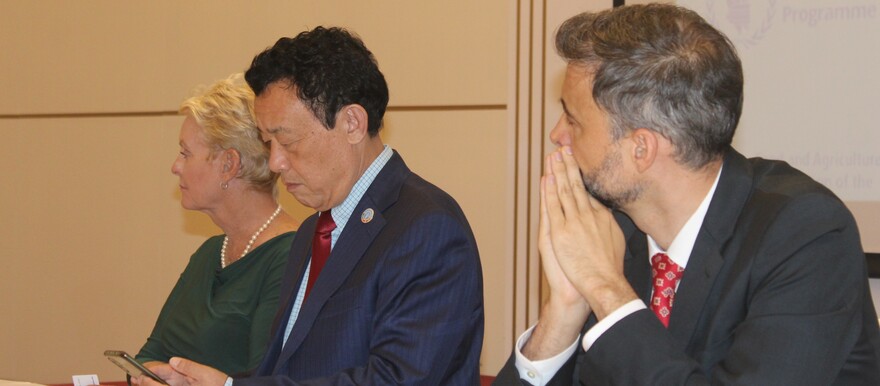Senior UN officials have issued a stark warning about the impending food crisis in South Sudan, emphasizing that millions of people in the country will suffer from hunger if urgent action is not taken.
The heads of the United Nation’s Food and Agriculture agencies, including Qu Dongyu, the Director-General of the Food and Agriculture Organization (FAO); Alvaro Lario, the President of the International Fund for Agricultural Development (IFAD); and Cindy McCain, the Executive Director of the World Food Programme (WFP), issued this warning as they concluded a three-day visit to South Sudan on Monday.
In their visit to the country, the officials witnessed the devastating effects of the humanitarian emergency, which stems from a combination of conflict, climate issues, and soaring food and fuel prices. The situation has been further aggravated by fighting in Sudan, forcing over 190,000 people to flee across the border to South Sudan, putting immense strain on already scarce resources.
Qu Dongyu stressed the urgent need for South Sudan to adopt policies that will enhance long-term food security, resilience, and climate adaptation. He remarked, “South Sudan has the potential to be the breadbasket of East Africa, but the climate crisis, poor agriculture infrastructure, instability, and economic shocks continue to disrupt agricultural and livestock productivity and food availability. Investments and enabling policies that will improve longer-term food security, resilience, and climate adaptation are urgently needed.”
Alvaro Lario pledged to mobilize substantial investments to combat food insecurity in the country and empower its young population through sustainable agricultural practices. He stated, “South Sudan is a young country, full of potential, but right now, families are relying on subsistence agriculture. With only four percent of farmland being cultivated and 80 percent of its young people living in rural areas, there is an enormous opportunity to grow and develop agriculture and the food sector more generally. To do this, we need to mobilize massive investments and implement best practices to combat food insecurity and adapt to climate change. This will also greatly improve rural employment. But we need to act now.”
Cindy McCain emphasized that the crisis in South Sudan is causing some of the highest levels of hunger in the world, exacerbated by conflict, climate change, and soaring costs. She urged for more comprehensive solutions than just providing food aid, stating, “Conflict, climate change, and soaring costs in South Sudan are causing some of the highest levels of hunger in the world. But just handing out food isn’t the solution. We must break the cycle and empower communities to plant the seeds of hope, opportunity, and economic development. With peace and stability, the potential of South Sudan is incredible. However, WFP doesn’t even have the resources needed to feed those who are hungry today – we need the world to step up.”
Despite past collaboration and efforts between the UN agencies and the government of South Sudan to avert famine and improve food production and incomes, scaled-up and sustained action is now required to respond effectively to the ongoing hunger crisis, prevent further setbacks, and address future challenges.
To address these challenges, the three Rome-based agencies—FAO, IFAD, and WFP—signed a new five-year partnership agreement, renewing their inter-agency cooperation. Under this agreement, they will work on transforming agrifood systems, promoting nutrition, advancing gender equality and women’s empowerment, building resilience, empowering youth, and addressing climate change issues.
In November 2022, United Nations agencies had already predicted that as many as 7.8 million people in South Sudan, comprising two-thirds of the population, would face severe food shortages between April and July 2023 due to floods, drought, and conflict. The situation has only worsened since then, underlining the urgency for immediate action to prevent a humanitarian catastrophe.




